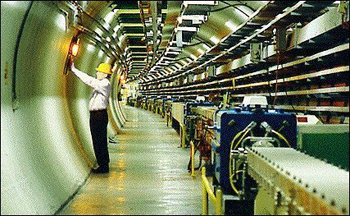£3.8m grant for particle physics
01/31/2007 12:22:06

A particle accelerator at CERN in Geneva where the ATLAS experiment is based
This is archived news from Lancaster University. You can find up-to-date stories in our current news section.
